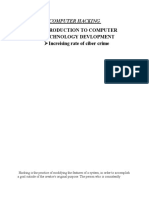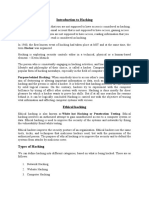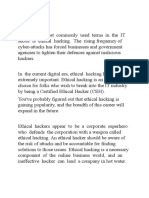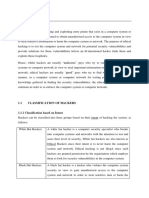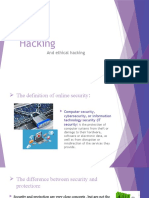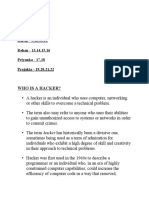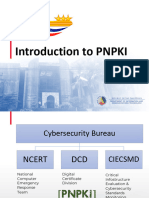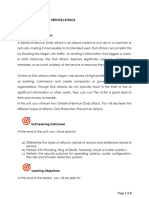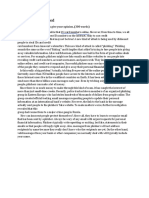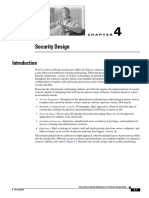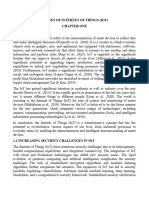0% found this document useful (0 votes)
270 views11 pagesUnit 1 Intro & Types of Hacking
This document provides an overview of the topics to be covered in the first unit of a midterm course on hacking. The unit includes an introduction to hacking, types of hackers, and cybercrime. It defines hacking as gaining unauthorized access to computer systems or networks and discusses ethical hacking as a legal form of penetration testing with permission. The document outlines different types of hackers including white hat (ethical), black hat (crackers), and grey hat hackers. It also covers cybercrimes and the importance of ethical hacking for security testing.
Uploaded by
Jovelyn Dela RosaCopyright
© © All Rights Reserved
We take content rights seriously. If you suspect this is your content, claim it here.
Available Formats
Download as PDF, TXT or read online on Scribd
0% found this document useful (0 votes)
270 views11 pagesUnit 1 Intro & Types of Hacking
This document provides an overview of the topics to be covered in the first unit of a midterm course on hacking. The unit includes an introduction to hacking, types of hackers, and cybercrime. It defines hacking as gaining unauthorized access to computer systems or networks and discusses ethical hacking as a legal form of penetration testing with permission. The document outlines different types of hackers including white hat (ethical), black hat (crackers), and grey hat hackers. It also covers cybercrimes and the importance of ethical hacking for security testing.
Uploaded by
Jovelyn Dela RosaCopyright
© © All Rights Reserved
We take content rights seriously. If you suspect this is your content, claim it here.
Available Formats
Download as PDF, TXT or read online on Scribd
/ 11







